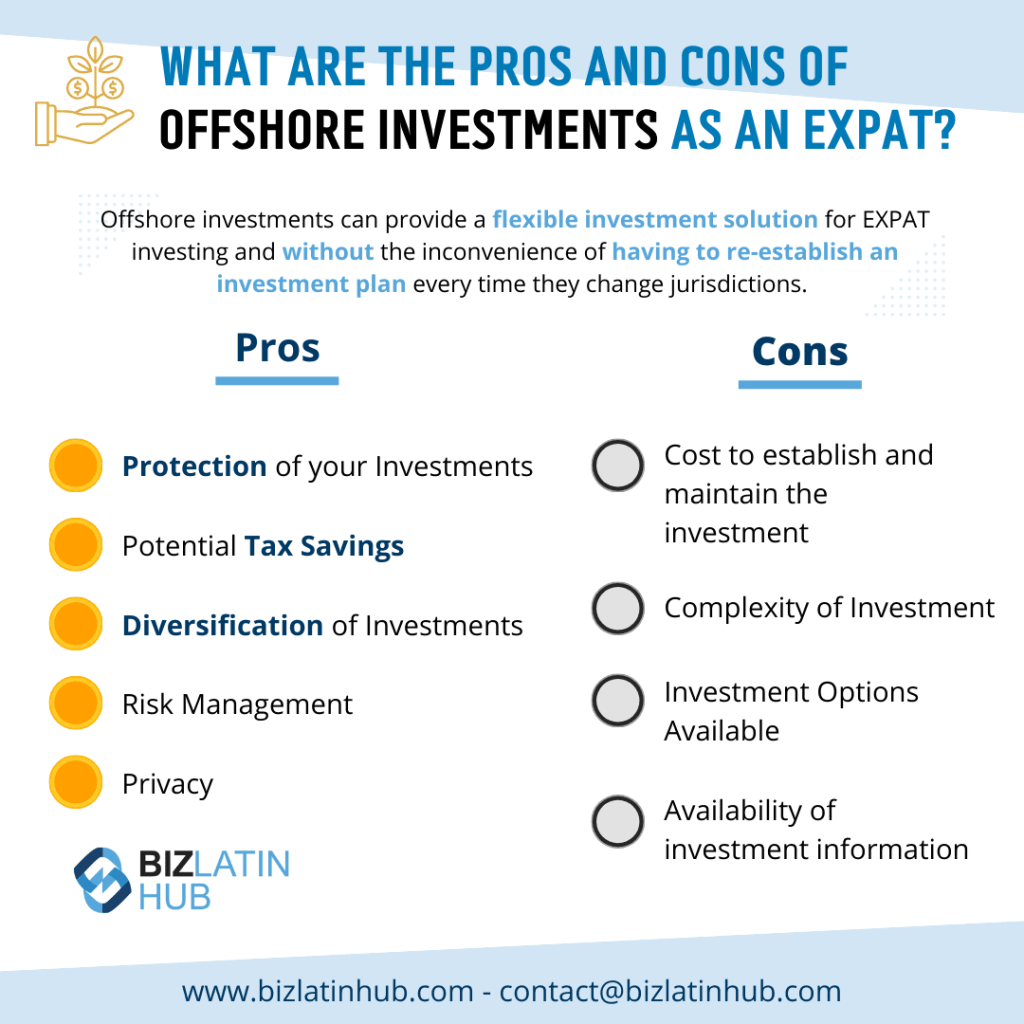Just How Offshore Financial Investment Functions: A Step-by-Step Failure for Investors
Offshore investment offers a structured pathway for financiers looking for to enhance their financial approaches while leveraging worldwide chances - Offshore Investment. The process begins with the careful option of a jurisdiction that lines up with a financier's goals, complied with by the establishment of an account with a legitimate overseas organization. This methodical strategy not just permits for portfolio diversity however likewise necessitates ongoing monitoring to navigate the intricacies of international markets. As we discover each step in information, it becomes apparent that understanding the nuances of this financial investment technique is critical for attaining ideal outcomes.

Comprehending Offshore Financial Investment
Comprehending overseas investment involves identifying the critical advantages it provides to people and firms looking for to enhance their monetary profiles. Offshore financial investments normally refer to possessions held in a foreign jurisdiction, frequently defined by positive tax obligation routines, governing environments, and privacy defenses. The primary intention behind such investments is to boost funding growth, diversification, and risk monitoring.

Investors can access a wide range of monetary tools through offshore venues, consisting of stocks, bonds, common funds, and realty. These investments are frequently structured to comply with local laws while providing versatility in terms of property allocation. In addition, overseas financial investment approaches can allow people and companies to hedge against domestic market volatility and geopolitical risks.
One more trick facet of offshore investment is the potential for enhanced personal privacy. Several overseas jurisdictions have strict confidentiality legislations, which can safeguard an investor's financial details from public disclosure. It is essential for capitalists to continue to be certified with their home nation's tax laws and coverage needs, as non-compliance can lead to extreme penalties. As a result, a thorough understanding of both the advantages and obligations connected with overseas financial investments is vital for notified decision-making.
Benefits of Offshore Investing
Financiers commonly turn to offshore investing for its countless advantages, consisting of tax obligation efficiency, asset defense, and portfolio diversification. One of the main advantages is the potential for tax obligation optimization. Numerous offshore territories provide positive tax obligation regimens, permitting capitalists to legally decrease their tax obligations and maximize returns on their financial investments.
Furthermore, overseas accounts can supply a layer of asset security. Offshore Investment. By placing properties in politically steady territories with strong privacy legislations, financiers can secure their wide range from possible legal cases, lenders, or economic instability in their home countries. This kind of defense is particularly appealing to high-net-worth individuals and entrepreneurs facing lawsuits risks
Moreover, overseas investing helps with profile diversification. Accessing international markets enables financiers to explore possibilities in numerous property classes, consisting of realty, supplies, and bonds, which may not be offered locally. This diversity can lower general profile risk and enhance prospective returns.
Eventually, the advantages of overseas investing are compelling for those seeking to optimize their financial techniques. It is critical for financiers to extensively recognize the ramifications and policies associated with overseas investments to ensure compliance and attain their monetary objectives.
Selecting the Right Territory
Picking the appropriate jurisdiction for offshore investing is a critical choice that can considerably affect a financier's financial method. The appropriate jurisdiction can offer numerous benefits, including positive tax obligation frameworks, property protection regulations, and governing environments that click here now align with a capitalist's objectives.
When selecting a territory, consider factors such as the political stability and financial wellness of the nation, as these elements can influence investment security and returns. Moreover, the legal structure bordering foreign financial investments need to be assessed to ensure conformity and security of possessions. Countries understood for robust legal systems and openness, like Singapore or Switzerland, frequently infuse higher self-confidence among financiers.
In addition, examine the tax effects of the jurisdiction. Some countries supply attractive tax obligation incentives, while others may enforce rigorous coverage demands. Comprehending these nuances can aid in maximizing tax obligations.

Actions to Establish Up an Offshore Account
Developing an overseas account entails a series of methodical steps that ensure conformity and security. The primary step is selecting a trustworthy offshore banks, which ought to be certified and controlled in its jurisdiction. Conduct comprehensive research to examine the organization's trustworthiness, solutions offered, and customer testimonials.
Following, gather the required paperwork, which typically includes identification, evidence of address, and info regarding the resource of funds. Different jurisdictions may have varying requirements, so it is crucial to validate what is needed.
When you could try this out the paperwork is prepared, launch the application process. This might include filling up out types on the internet or in individual, depending on the organization's methods. Be prepared for a due persistance procedure where the bank will certainly verify your identity and analyze any kind of possible dangers related to your account.
After approval, you will certainly receive your account details, allowing you to fund your overseas account. It is a good idea to preserve clear documents of all transactions and adhere to tax obligation policies in your home nation. Establishing the account properly establishes the structure for efficient offshore financial investment administration in the future.
Managing and Monitoring Your Investments
As soon as an overseas account is successfully established, the emphasis shifts to managing and monitoring your financial investments properly. This critical phase entails an organized approach to ensure your properties align with your economic objectives and risk tolerance.
Begin by establishing a clear investment approach that outlines your goals, whether they are capital preservation, revenue generation, or development. Frequently review your profile's performance versus these standards to evaluate whether changes are required. Making use of monetary administration tools and platforms can facilitate real-time tracking of your financial investments, providing understandings into market trends and possession allocation.
Involving with your overseas monetary advisor is crucial. They can use competence and support, helping you browse intricate regulative environments and worldwide markets. Schedule routine evaluations to discuss efficiency, evaluate market problems, and alter your strategy as needed.
In addition, continue to be notified regarding geopolitical developments and economic indications that may impact your investments. This aggressive strategy enables you to respond immediately to altering situations, ensuring your overseas profile continues to be durable and lined up with your investment objectives. Inevitably, thorough monitoring and continuous tracking are essential for making best use of the benefits of your overseas investment strategy.
Verdict
To conclude, overseas investment uses a tactical method for portfolio diversification and danger management. By engaging and picking a proper territory with trustworthy economic establishments, financiers can browse the complexities of international markets properly. The methodical approach described guarantees that financiers are well-appointed to maximize returns while sticking to lawful frameworks. Continued surveillance and partnership with financial advisors remain important for maintaining an active investment technique in an ever-evolving worldwide landscape.
Offshore investment presents a structured path for investors seeking to optimize their monetary strategies while leveraging international chances.Recognizing overseas financial investment entails recognizing the calculated advantages it offers to individuals and companies seeking to maximize their monetary explanation profiles. Offshore financial investments generally refer to properties held in a foreign territory, typically identified by favorable tax regimens, regulative environments, and personal privacy securities. Additionally, overseas investment approaches can allow people and services to hedge versus residential market volatility and geopolitical dangers.
